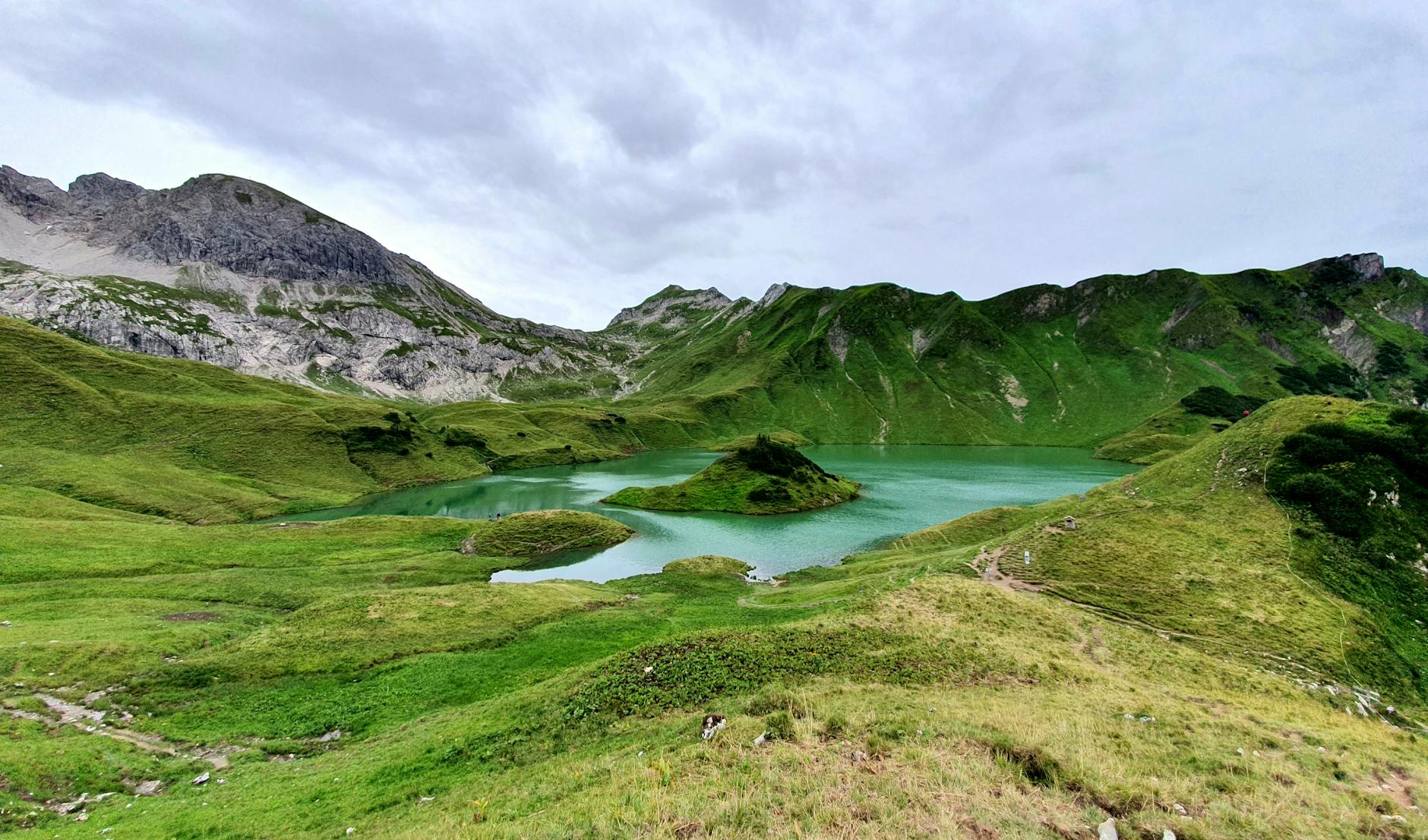How Eco-Travel Strategies in Australia Can Boost Sustainability

Eco-Friendly Travel Practices
Understanding and adopting eco-friendly travel practices is crucial for those of us keen on preserving the environment while exploring new destinations. In Melbourne, the Royal Botanic Gardens exemplify the harmony between human interaction and nature, a principle we can extend to holiday planning. When considering travel to places like South America, choosing South America travel options that emphasize sustainability is essential. This includes selecting transportation and accommodations that minimize environmental impact, whether through low-emission vehicles or eco-certified lodgings.
Exploring sites like Machu Picchu through Machu Picchu tours that focus on ethical and environmentally friendly operations can significantly reduce negative influences on such precious ecosystems. It's essential to make informed choices that prioritize conservation, ensuring these historic landmarks endure for future generations.
If, like me, you're inclined towards colder climates, Arctic cruises offer a unique opportunity to witness the effects of climate change first-hand. It's vital to select cruise lines committed to reducing their environmental footprint, contributing to polar region preservation. Aligning our adventures with eco-friendly practices not only benefits the planet but enriches our experiences as conscientious travelers.
Promoting Local Conservation
Supporting Indigenous Initiatives
I've always championed the significance of nurturing connections with Indigenous communities as a cornerstone for conservation success. Their profound understanding of local ecosystems is vital for sustaining biodiversity, aligning with the preservation ethos akin to the eco-friendly practices of Melbourne Zoo. Engaging in Tanzania tours offers glimpses into how Indigenous knowledge can be the bedrock for effective conservation projects, providing insights that are often not found in conventional methods.
Collaborating with Local Communities
Collaborative efforts with local communities play a crucial role in ecological conservation. By fostering partnerships with small businesses and community groups, we can ensure that conservation efforts are locally owned and driven. A model worth considering can be seen on Galapagos Islands tours, where local involvement has led to the establishment of eco-friendly practices that benefit both the environment and the economy. These initiatives mirror Melbourne's own collaborative spirit in conserving its green spaces, like those evident at Yarra Bend Park.
Participating in Conservation Projects
Being actively involved in conservation projects is not just an adventure; it embodies a commitment to sustainable travel. Many programs offer opportunities that range from hands-on environmental restoration to community-led research. Initiatives, similar to those integrated into Central America tours, emphasize sustainable interactions with nature, ensuring minimal impact on habitats while contributing to global conservation efforts. By participating, you’re not only enriching your experiences but also supporting a broader ecological mission.
Reducing Carbon Footprint
Utilizing Renewable Energy
Incorporating renewable energy into travel plans can significantly reduce carbon emissions and is a pressing issue that aligns well with environmentally aware travellers. Many destinations now feature renewable technologies making it easier to align travel choices with eco-conscious values. As you explore destinations like Cuba tours, prioritising accommodations and transport options powered by solar, wind, or other renewable sources becomes crucial. These practices mirror the eco-friendly innovations seen at places like the Royal Botanic Gardens Melbourne, where sustainable practices are prioritised.
Importance of Offsetting Emissions
Offsetting emissions plays a crucial role in maintaining sustainable tourism. This can be achieved by investing in carbon offset programs, which support projects that reduce greenhouse gas emissions globally. These programs often include reforestation and renewable energy initiatives. By understanding and applying such mechanisms, much like the eco-policy analyses that guide the eco-friendly practices of Melbourne Zoo, travellers can make a lasting positive impact on the environment.
Sustainable Travel Planning Tools
Strategically planning your travel itinerary using sustainable travel tools helps in making informed decisions that align with eco-friendly values. Tools like Antarctica travel apps or platforms offer insights into sustainable destinations, accommodation options, and activities that lower your carbon footprint. These tools enable you to integrate sustainability into every aspect of your travel, ensuring that your adventures are as eco-conscious as possible. This aligns with the ethos of embracing green spaces, akin to the efforts made at Yarra Bend Park, aiming to reduce environmental impact.
Enhancing Environmental Education
Engaging in Eco-Tours
As travellers with a passion for sustainability, eco-tours in South America offer enriching opportunities that won’t compromise environmental responsibility. These South America tours provide an in-depth exploration of various ecosystems while promoting conservation efforts. Visitors can experience biodiversity firsthand, fostering a greater appreciation for nature and its preservation. For example, some tours incorporate visits to wildlife sanctuaries and biological reserves that emphasise habitat protection. Engaging in these experiences enriches your environmental understanding and supports conservation projects financially, ensuring continued protection for these vital areas.
Participating in Workshops
Participating in workshops is another way to immerse yourself in sustainable practices while travelling, providing practical eco-education that can be applied daily. Many South America holidays include sessions led by local experts discussing sustainable living practices, conservation techniques, and traditional ecological knowledge. Such workshops inspire meaningful reflections on personal and collective contributions to environmental preservation. Whether learning about permaculture in the Amazon or renewable energy applications in the Andes, these workshops facilitate skill-building and cultural appreciation, enriching your travel experience significantly.
Learning from Local Experts
Local experts play a pivotal role in educating travellers about sustainable practices and the cultural significance of diverse ecosystems. By engaging with these knowledgeable individuals, you gain insights into intricate local ecosystems, effective conservation strategies, and sustainable customs integral to regional communities. This engagement, akin to the eco-friendly practices of Melbourne Zoo, promotes a shared learning experience that transcends global boundaries, enhancing both personal and broader ecological awareness.
Leading Sustainable Travel Practices
Embracing the Zero-Waste Movement
Incorporating zero-waste principles into travel routines not only contributes to environmental sustainability but also sets a benchmark for conscious consumption. While exploring Melbourne's treasures, like the Royal Botanic Gardens Melbourne, consider simple practices such as using reusable containers and refusing single-use plastics. Implementing these strategies can significantly reduce waste and align with zero waste travel tips. By prioritising resources that limit landfill contributions, we pave the way for a more sustainable future.
Opt for Eco-Conscious Souvenirs
Choosing souvenirs crafted from sustainable materials supports both the environment and the local artisans who create them. Instead of mass-produced items, explore markets for handmade crafts or organically sourced goods. This not only enhances our travel experiences but also fosters appreciation for Melbourne's vibrant culture. Furthermore, learning about the eco-friendly practices of Melbourne Zoo may inspire more conscious decision-making. Keeping these ideals at the forefront promotes a deeper understanding of a region's ecological ethics.
Share the Eco-Friendly Knowledge
One of the most impactful steps we can take is to share eco-friendly travel advice with others. By discussing experiences and insights gained from visits to places like the green spaces at Yarra Bend Park, we inspire fellow travellers to adopt similar sustainable practices. A community-driven effort to promote eco tourism sustainability will ensure that future generations can also relish in the unspoiled beauty of our planet. Let’s champion this movement by exchanging knowledge and continually learning from the eco-conscious community around us.


